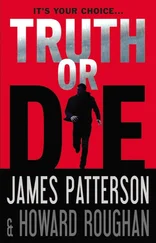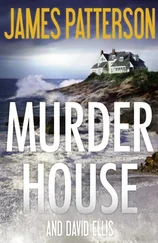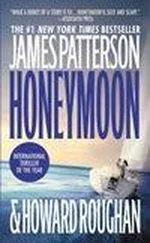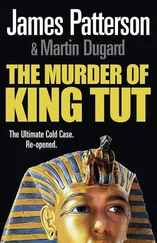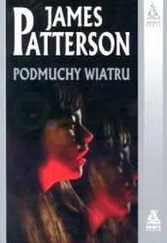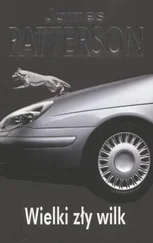 18
18 
The police and CSI techs finally pulled down the crime-scene tape at the top of the stairs and left our home, taking with them my parents’ computer hard drives and notebooks, as well as cardboard file boxes filled with objects from my parents’ bedroom.
A wave of inexplicable anger washed over me, which I immediately quelled. If only I had someone I could commiserate with about this invasion of privacy, about the way everyone was treating us like murderers instead of grieving children.
But I had no friends to call. I hadn’t even thought about what it would be like to go back to school after everything that had happened, and I didn’t trust anyone there, anyway. Since the murders, Harry and Hugo had been spending most of their time in their rooms. I was a loner, like they were, but I had never before felt loneliness quite like this.
I went to the semicircular bay window behind the piano and looked down onto Seventy-second Street to watch the police load up their vans with my parents’ belongings. It was unlikely I would ever see these things again; I was certain they were doomed to languish in storage in some dark police facility.
A herd of reporters stampeded toward Hayes and Caputo, and then followed the cop cars and crime-scene vans on foot, shouting for attention as the police vehicles took off toward the precinct on West Eighty-second.
The band of reporters reassembled at the front gate, and I watched the attractive newscasters flipping their hair and fastening microphones to their collars, using the backdrop of the Dakota for their on-air reports.
I tried to imagine what Maud would have thought of all this, if she’d ever imagined her death at all. Surely she would have chosen something dignified at the age of ninety or so—maybe a quick cerebral hemorrhage after a full day of work. She wouldn’t have wanted the Post , the Daily News , Fox News, and Entertainment Tonight fluttering around the building, picking at the details of her life. As much as she revered success, she detested the mass forms of communication that reported on the successful. Call it yet another contradiction that my parents embodied.
I went across the hall to our home theater, with its plush velvet seats lined up in front of a gargantuan screen that doubled as a television when we weren’t watching movies (strictly educational films, of course). I clicked to a news station, and a reporter that I had actually just seen from the window was now looking out at me from the TV screen, saying:
“With his brother, Peter, Malcolm Angel owned Angel Pharma, a multinational drug company. Maud Angel was founder and CEO of a successful hedge fund, Leading Hedge, which has come under SEC scrutiny in the last few weeks.
“Still, the Angels died at the pinnacle of success. Their motto was ‘yes we can,’ long before Barack Obama campaigned with that slogan.
“The Angels leave four children ranging in age from ten to twenty-four. The oldest is the celebrated athlete Matthew Angel, who plays for the New York Giants. All four children are known to be high achievers—or, as some say, overachievers.
“But that figures into the Angel family reputation. Malcolm and Maud Angel were referred to in their social circle as ‘Tiger Mom and Tiger Dad.’ And now the tigers are dead.
“The police have no comment, but if you’re just joining us, Inside News has learned that the Angels’ deaths have been termed ‘suspicious.’ We’ll be bringing you further news on this story as it unfolds. Stay tuned to this station.…”
No. I’d had way too much of the news already.
I turned off the TV and wandered out of the theater. The apartment was still cloaked in an eerie silence. Matthew and Hugo were in Hugo’s room. Samantha’s door was closed. And my twin typically sleeps late on Saturdays. That day, I thought, Harry might not get out of bed at all.
If I closed my eyes, I could almost pretend it was a normal weekend at the Angel house, with Malcolm and Maud off at work, putting in overtime. And I wondered: What would a normal family be doing less than twenty-four hours after discovering their parents had been murdered?
I suppose they’d be together , for one. There would still be a lot of tears, runny noses, wailing, and grinding of teeth. Lots of visitors coming over making sure everyone was okay, bringing food and things to make sure the grieving family members didn’t have to worry about feeding themselves. Does that sound about right?
I wouldn’t know. All I know is that we will never be normal. Because I wasn’t thinking about any of that. Here’s what I was thinking:
It was a perfect time to search the house—especially my parents’ room. The scene of the crime.
 19
19 
I have to admit that by that point I had already become obsessed with solving my parents’ murders. I should also confess that I’m a bit obsessive-compulsive anyway.
I took a self-guided tour of the downstairs rooms just to make sure that no stone had been left unturned, that no obvious forced entry had been missed. I thoroughly checked the family rooms: living room, hallways, library, and kitchen. I double-checked the laundry room and the back door and the elevator. I saw no nicks or breaks in the door frames, no scratches on the locks. I saw nothing out of place. Disappointing.
Everywhere I looked, I saw Angel family perfection.
I took to the stairs and noticed right away that I was finding it a little difficult to breathe. This was my parents’ suffocating world, after all. But I was having an uncharacteristically emotional reaction to it.
Halfway up, I passed Mercurio, the larger-than-life sculpture of a merman hanging from his tail by a chain and a hook screwed into the ceiling. “Blood” was dripping down his chest, and there was a look of pure anguish on his face. Fitting.
Mercurio was another of Hugo’s Grande Gongo “prizes,” and another parental indulgence with a message: Life is serious. You win or you lose, and winning is a lot better.
My father had told us about the actual, real-life Grande Gongo , a cutting-edge container ship docked in Korea and flying the Italian flag. He’d said that the Grande Gongo was an “an intrepid craft on a mission—with no boundaries.” And that was how he thought of his children.
Certificates of excellence had been hung on the stairwell wall, alongside mottos that my father had found important enough to frame. The one he never let us forget was written by a poet and priest who had died almost four centuries ago:
ONE FATHER IS MORE THAN A HUNDRED SCHOOLMASTERS.—GEORGE HERBERT
There was another framed item that I rarely passed without stopping to read it again. It was an envelope and letter from Hilda Angel—my father’s mother—who died just before Malcolm and Maud were married.
Apparently, Gram Hilda had not approved of the marriage.
She had scrawled on the back of the envelope, “Do not open until my will has been read.”
After the reading of her will, the letter was opened. It was in my grandmother’s handwriting, and it was signed and notarized. Even the notary’s signature had been notarized. It read:
“I am leaving Malcolm and Maud $100, because I feel that is all that they deserve.”
Rather than feeling insulted, my parents had used Hilda’s disapproval to fuel their financial aspirations. They had made millions and millions since Gram Hilda had disinherited them. Her letter was a Big Chop that was also a stupendous motivator.
Читать дальше
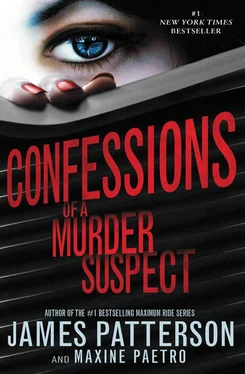
 18
18 


